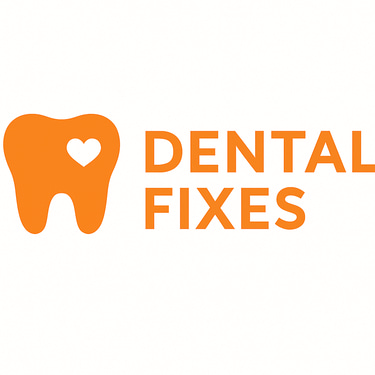Top 5 Dental Insurance Providers Covering Dental Implants in 2025
SURGERYCOSMETICSOTHER


Why Dental Implant Insurance Matters
Dental implants are one of the most effective and long-lasting solutions for missing teeth. Unlike dentures or bridges, implants fuse with the jawbone to provide a permanent replacement that looks, feels, and functions like a natural tooth. The downside? The cost.
A single dental implant in the United States can range from $3,000 to $6,000 per tooth, and full-mouth implant restoration can climb above $30,000–$50,000. Most patients can’t shoulder this expense alone, making dental insurance that covers implants an invaluable tool.
However, not all dental insurance providers include implants in their coverage. Many older policies excluded them entirely, considering implants a “cosmetic” procedure. In 2025, this trend has shifted—several major insurers now offer plans with implant coverage, though benefits, waiting periods, and limits vary widely.
Below, we analyze the top five dental insurance providers for implant coverage in 2025: Delta Dental, MetLife, Physicians Mutual, Spirit Dental, and Cigna. We’ll break down their plans, coverage details, pros and cons, and help you decide which provider offers the best value.
1. Delta Dental
Overview
Delta Dental is the largest dental insurance provider in the U.S., with over 80 million enrollees and one of the most extensive provider networks nationwide. Known for flexibility, Delta Dental offers both PPO and HMO plans, many of which now cover implants.
Coverage Details
Plan types: PPO, HMO, fee-for-service plans depending on the state.
Implant coverage: Typically 50% of implant costs after the deductible.
Deductibles: $50–$100 per person annually.
Annual maximums: $1,500–$2,000 is common; some premium plans extend to $2,500.
Waiting periods: Generally 6–12 months for major services, including implants.
Premiums: $30–$60 per month for individual PPO plans with implant coverage.
Network: Largest in the U.S., covering nearly every state.
Pros
Extensive nationwide network.
Widely available PPO options.
Solid reputation and financial stability.
Cons
Annual maximums ($1,500–$2,000) may not cover much of a single implant procedure.
Some plans exclude implants unless specifically upgraded.
2. MetLife
Overview
MetLife offers dental insurance through its PDP Plus PPO network, which is among the largest in the country. Known for employer-sponsored plans, it also offers individual plans with implant coverage.
Coverage Details
Plan types: PPO only.
Implant coverage: Typically 50% after deductible, with some plans covering up to 60%.
Deductibles: $50–$75 annually.
Annual maximums: $1,500–$2,000 standard, with some plans reaching $3,500.
Waiting periods: 6 months for basic services; up to 12 months for implants.
Premiums: $35–$70 monthly for individuals, higher for families.
Network: PDP Plus covers over 490,000 participating providers nationwide.
Pros
Higher annual maximums available compared to many competitors.
Strong PPO flexibility.
Broad national provider network.
Cons
Longer waiting periods for implants (up to 12 months).
Premiums slightly higher than average.
3. Physicians Mutual
Overview
Physicians Mutual specializes in dental plans designed for seniors and retirees. Unlike many insurers, its dental insurance always includes implants as a covered service, making it a standout for older patients who often need implants.
Coverage Details
Plan types: PPO-style plans with freedom to choose any dentist.
Implant coverage: Coverage starts lower (25–30%) and increases to 50% or more after year 2–3.
Deductibles: None.
Annual maximums: No annual maximums—coverage increases over time, which is rare.
Waiting periods: Typically no waiting period for preventive; 12 months for implants.
Premiums: $30–$60 per month depending on location and age.
Network: No restrictive networks; patients can choose any licensed dentist.
Pros
No annual maximum limits.
Deductible-free plans.
Designed with senior needs in mind.
Cons
Coverage percentages start low.
Benefits take multiple years to reach full implant coverage.
4. Spirit Dental
Overview
Spirit Dental is a popular choice for individuals purchasing their own insurance. It stands out for offering immediate coverage with no waiting periods, which is rare in dental insurance.
Coverage Details
Plan types: PPO plans, often underwritten by Ameritas.
Implant coverage: Generally 50% after deductible.
Deductibles: $100 one-time lifetime deductible (not annual).
Annual maximums: Generous, ranging from $1,200–$5,000 depending on the plan.
Waiting periods: No waiting period for any procedure, including implants.
Premiums: $40–$80 per month for individuals.
Network: Large PPO network but allows out-of-network care.
Pros
No waiting periods at all.
High annual maximums (up to $5,000).
Lifetime deductible instead of yearly reset.
Cons
Premiums can be higher than competitors.
Not always available through employers; usually individual policies.
5. Cigna
Overview
Cigna is a global health insurance leader with strong dental plans available across the U.S. Its Cigna Dental PPO and Cigna Dental Care (DHMO) plans offer implant coverage in many states.
Coverage Details
Plan types: PPO and DHMO.
Implant coverage: 50% of cost after deductible (PPO); DHMO plans may have set copayments.
Deductibles: $50 per person, $150 per family annually.
Annual maximums: $1,500–$2,500 for most PPO plans.
Waiting periods: 6–12 months for major services like implants.
Premiums: $30–$65 monthly for individual PPO plans.
Network: Strong national network with 93,000+ dentists.
Pros
Affordable premiums compared to some competitors.
PPO and HMO flexibility.
Wide availability across states.
Cons
Annual maximums can limit implant cost coverage.
Waiting periods apply for new enrollees.
Who Offers the Best Value?
Choosing implant insurance requires balancing costs, waiting periods, and maximum coverage. Here’s how the top providers compare:
Best for Network Size & Reliability: Delta Dental – unmatched nationwide access.
Best for Higher Annual Maximums: MetLife – some plans reach $3,500.
Best for Seniors: Physicians Mutual – no annual maximums and coverage that grows over time.
Best for No Waiting Periods: Spirit Dental – immediate implant coverage with high annual limits.
Best for Affordable PPO Options: Cigna – balanced cost and coverage.
Overall, if you want immediate coverage and higher annual maximums, Spirit Dental offers the strongest option. For long-term affordability and broad provider choice, Physicians Mutual is ideal, especially for retirees. Delta Dental and MetLife remain reliable picks for those seeking large provider networks, while Cigna balances cost-effectiveness with accessibility.
Tips for Choosing the Right Dental Implant Insurance
Check for Implant Coverage Specifically – Some “major service” categories exclude implants; always confirm before enrolling.
Compare Annual Maximums – A $2,000 maximum may not go far toward a $5,000 implant; higher maximums or no limits (Physicians Mutual, Spirit Dental) can be better.
Understand Waiting Periods – If you need implants soon, look for plans with no waiting periods like Spirit Dental.
Factor in Deductibles and Copays – Even $50–$100 deductibles add up; Spirit’s lifetime deductible may be more cost-effective.
Evaluate Premiums vs. Benefits – Don’t just pick the cheapest plan; balance monthly cost with real implant coverage.
Check Provider Networks – If you already have a trusted dentist, confirm they are in-network before enrolling.
Conclusion
Dental implants are life-changing but come with steep costs. In 2025, more insurers are offering coverage, but benefits vary widely.
Delta Dental provides reliability and the largest network.
MetLife offers higher-than-average annual maximums.
Physicians Mutual eliminates annual maximums, making it great for seniors.
Spirit Dental stands out with no waiting periods and generous maximums.
Cigna balances affordability with flexible plan choices.
The right plan depends on your budget, timeline, and provider preferences. If you need immediate coverage, Spirit Dental is a clear winner. If you can wait and want long-term value, Physicians Mutual shines. For broad access, Delta Dental or MetLife may be best.
Before enrolling, carefully review plan documents, ask about implant-specific coverage, and consider how much of your procedure costs will realistically be covered. With the right plan, you can reduce out-of-pocket costs significantly and make the investment in your smile more affordable.
